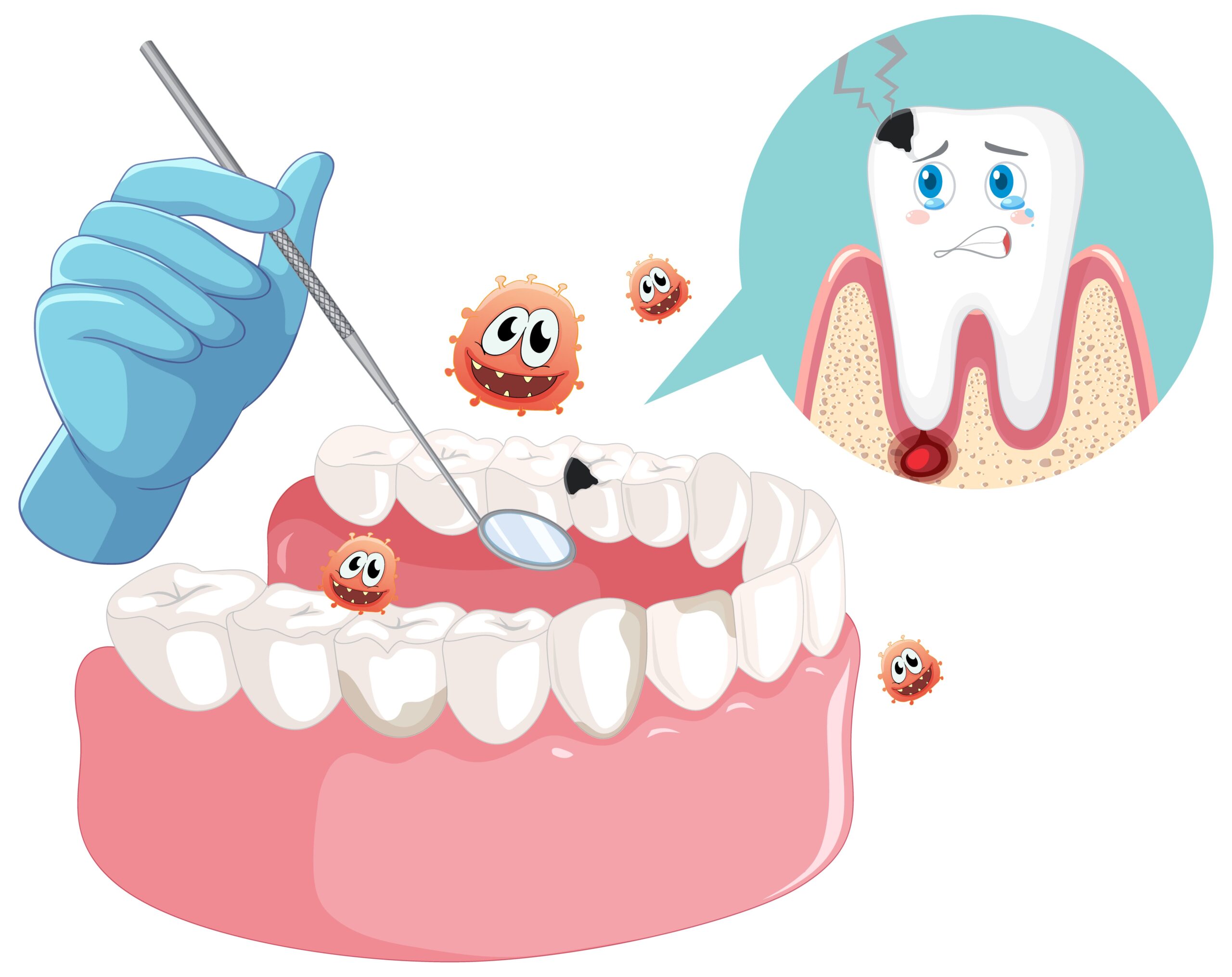
Wisdom teeth, as known to all, are the last set of teeth that grow in one’s adulthood. Also known as ‘third molars,’ they tend to rise at the back of the mouth. Sometimes, a wisdom tooth usually grows without any trouble. However, often, these teeth lack adequate space to emerge and get entirely trapped in the gums or jawbone. The result is:
- Pain
- Cavities
- Infection, or
other oral issues.

Generally, adults have four wisdom teeth in their entire lifetime. On the contrary, it is also common for people to not have any wisdom teeth at all. So, if you fall into the former category and are experiencing some issues like those mentioned above, you may be wondering whether extracting your wisdom teeth is a feasible solution.
To determine whether or not wisdom tooth extraction is necessary, here are the signs you must watch out for.
Do We Need To Remove Wisdom Teeth?
The following indications denote that you need to see an oral surgeon to evaluate if you need to remove your troublesome wisdom tooth:
1. Tremendous Pain
The first and most evident sign you need wisdom teeth extraction is experiencing extreme pain in that area. This holds more true when the pain refuses to subside despite taking medications.
There may not be one but several causes of such pain. Usually, the pain feels like something is trying to emerge against your gums or jaws. In addition, the pain can spread to other areas of the mouth, too. If the pain persists for many days, visit an oral surgeon as soon as possible. The surgeon will perform various tests to evaluate it.
2. Swollen or Tender Gums
Swollen gums around the wisdom tooth are another vital sign. When wisdom teeth are trying to emerge on the surface, the action can result in friction, causing the gums to feel irritated. While eating, it is usual for food particles to get stuck in the gum, leading to swelling and tenderness. Taking out the food particles can be challenging since you don’t want to add to the discomfort.
Hence, removing your wisdom teeth can provide you with great relief.
3. Discomfort in the Jaws
Discomfort from wisdom teeth is not associated with only pain and swollen gums. The growth of the third molars also impairs the ability to chew or shut your jaws effortlessly. If your jaw movement is impacted, eating, drinking, or even talking is also impacted. Such a problem can be quickly resolved by getting your wisdom teeth removed.
4. Headaches

If the condition of your wisdom teeth is severe, the pain may also radiate to other areas in your mouth or even your ear, head, or neck. If you’re experiencing a severe headache from your wisdom teeth, there is no better solution than extracting them. Before it moves on to your ears and causes unbearable earache, prioritizes consulting your dentist above anything else.
5. Sinus Issues
You may be wondering why a wisdom tooth is linked to the functioning of your sinuses. Strangely enough, the action can trigger sinus issues if your wisdom teeth are growing in your upper jaw. To be precise, the wisdom teeth exert pressure towards the top of your mouth, pushing against your sinuses, resulting in sinus-related problems like headaches, pressure, and congestion. If sinus issues are recurring, you may consider consulting your dentist at the earliest.
6. Cysts Inside Your Mouth
Cysts are usually small, liquid-filled formations developing on your gums or jaws. When wisdom teeth try to emerge, the pressure leads to the formation of cysts surrounding the wisdom teeth. You can usually feel the cysts developing in the afflicted area, and pain is again a common factor. If you feel painful cysts developing at your wisdom teeth, consult an experienced oral surgeon immediately since neglecting it can lead to severe infection.
7. Bad Breath
Bad breath is a common occurrence in cases of wisdom teeth emergence. The reason is simple. The third molars grow at the back of the mouth, that is, hard-to-reach regions. As a result, when brushing, these areas are often overlooked, and bacteria accumulate, causing bad breath. Perhaps you’re implementing the best dental hygiene practice, but eliminating all the accumulated bacteria from the back of your mouth can be impossible. Along with bad breath, experiencing a foul taste inside your mouth is always a sign of bacterial growth.
8. Crooked Teeth

Consider yourself lucky if the growth of wisdom teeth doesn’t impact the alignment of your natural set of teeth. But if it does, your whole set of teeth may appear to be crooked, which may not look appealing. In that case, extraction is the only option. Your wisdom tooth will grow by pushing the other teeth in the way, creating space for itself. In such situations, your mouth can look overcrowded, an issue that extraction will resolve.
Conclusion
The experience of wisdom tooth development is often accompanied by pain and discomfort. Living every day with such pain implies being unable to enjoy anything, including your favorite food. On the contrary, extracting wisdom teeth alleviates extreme pain, helping you lead a happy, healthy life.
If you’re looking for the most proficient dentists in Hyderabad, you can connect with Gnathos Dental. We have been offering world-class dental treatments to numerous patients for the past 15+ years and have earned stellar patient reviews. From wisdom tooth extraction to dental implant service, our team of certified dentists uses cutting-edge technology to offer efficient, quick, and comfortable treatments.
